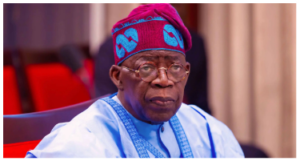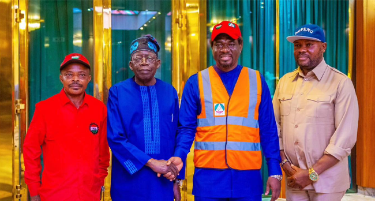President Bola Tinubu is set to meet with the leadership of the Organized Labour as part of ongoing discussions regarding a new minimum wage for Nigerian workers. According to the Minister of Information and National Orientation, Mohammed Idris,
The issue of the new minimum wage was a key topic during the recent Federal Executive Council (FEC) meeting held on Monday. During this meeting, the Minister of Budget and National Planning, Atiku Bagudu, was tasked with developing a proposal for an Amendment Act to the 2024 Appropriation Act, which will be submitted to the National Assembly.
This forthcoming meeting between President Tinubu and labour leaders follows a recent engagement last Thursday, where the President met with Joe Ajaero, President of the Nigeria Labour Congress (NLC), and Festus Osifo, President of the Trade Union Congress (TUC), at the State House in Abuja. At the conclusion of this meeting,
President Tinubu emphasized the need for realistic expectations concerning the new minimum wage. He highlighted the importance of aligning demands with available resources, stating, “You have to cut your coat according to available cloth. Before we can finalize the minimum wage process, we have to look at the structure.”
 Currently, the minimum wage in Nigeria stands at ₦30,000. However, there are significant disparities between the proposals on the table. The government and private sector have put forth a proposal of ₦62,000, while the Organized Labour is demanding a substantial increase to ₦250,000. President Tinubu is expected to make a critical decision regarding these proposals.
Currently, the minimum wage in Nigeria stands at ₦30,000. However, there are significant disparities between the proposals on the table. The government and private sector have put forth a proposal of ₦62,000, while the Organized Labour is demanding a substantial increase to ₦250,000. President Tinubu is expected to make a critical decision regarding these proposals.
This meeting is particularly noteworthy as it comes about a month after President Tinubu announced in his Democracy Day speech on June 12, 2024, that an executive bill on the new national minimum wage would soon be submitted to the National Assembly for passage. On June 25, the Federal Executive Council (FEC), chaired by the President, decided to defer consideration and deliberation on the new minimum wage memo to allow for further engagement with stakeholders.
In addition to these efforts, two days after the FEC meeting, President Tinubu and Vice President Kassim Shettima convened the 141st meeting of the National Economic Council (NEC). This meeting brought together governors from the 36 states of the Federation and various ministers to deliberate on the new minimum wage for workers. This multi-layered approach underscores the administration’s commitment to ensuring a comprehensive and inclusive dialogue on this critical issue.
The upcoming discussions with the Organized Labour leadership are crucial in charting a path forward that balances the needs of workers with the economic realities facing the nation. As these deliberations continue, stakeholders and observers alike are keenly watching for developments that will shape the future of labor relations and economic stability in Nigeria.




